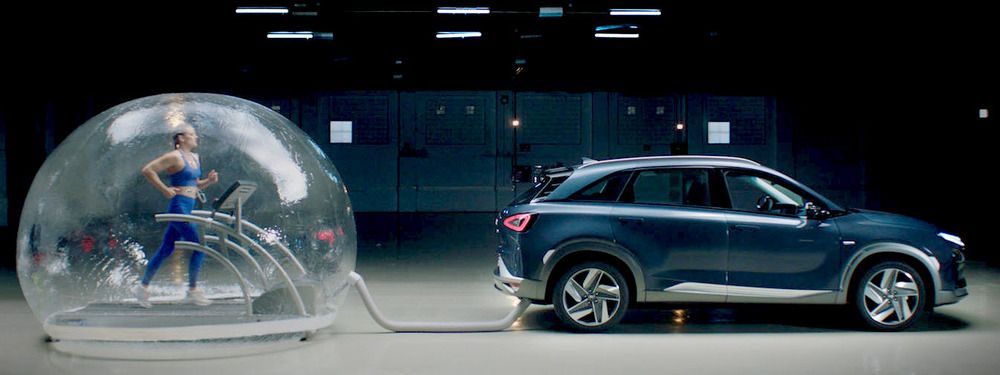Jan 21, 2021
Astronomers spotted a rare galaxy shutting down star formation
Posted by Genevieve Klien in category: cosmology
A distant galaxy harbors an active black hole and active star formation at the same time – an unusual coincidence.
A distant galaxy harbors an active black hole and active star formation at the same time – an unusual coincidence.
The car-size Perseverance rover, the core of NASA’s $2.7 billion Mars 2020 mission, will land Feb. 18, kicking off a new era of Red Planet exploration.
From planet of love to scorching Hell planet—the image of Venus has changed considerably since ancient times, because it is no longer just the third brightest natural object in Earth’s skies. The ancients equated the mysterious third light with the goddess of love; in Greece that was Aphrodite, whom the Romans conflated with the goddess Venus. That’s where our closest planetary neighbor got its name and why Men are from Mars, Women are from Venus worked as a best-selling title, as recently as 1992, and still sells. But since the mid-20th century, we’ve known in detail why a paradise Venus is not. Average temperature on the surface is a scorching 462° Celsius (864° Fahrenheit) while atmospheric pressure is 90 times that of Earth at sea level, or equivalent to being at 900 meters depth in Earth’s oceans.
A handful of Russian landing probes have survived for several minutes on the planet’s surface before being cooked and crushed, but the conditions are unquestionably inhospitable for life forms. Consequently, you do not hear about astrobiologists searching for native microorganisms on the Venusian surface the way you hear about the search for microorganisms on Mars. Nevertheless, since the late 20th century, planetary scientists have speculated that Venus could have boasted a much more hospitable environment in the distant past, perhaps 2–3 billion years ago. That’s around the time that Earth was accumulating oxygen in its oceans and atmosphere. At that point in history, Venus and Earth may have had similar climates.
What’s been in the news lately is a study involving computer climate simulations in which data from NASA’s Magellan mission to Venus were found to support the idea of a once habitable Venus. The study involved researchers from NASA, Uppsala University in Sweden, Columbia University, and the Planetary Science Institute in Tucson, AZ.

Tech featured in this video:
* Learn more about the GPT-3 API Here: https://openai.com/blog/openai-api/
* GPT-3 Paper: Language Models are Few Shot Learners — https://arxiv.org/abs/2005.14165
* Avatar for GPT-3 provided by Synthesia https://www.synthesia.io/
Continue reading “What It’s Like To be a Computer: An Interview with GPT-3” »
Author and entrepreneur Jeff Wald discusses his book “The End of Jobs: The Rise of On-Demand Workers and The Agile Corporation,” on the latest Seeking Delphi™ podcast. The conclusions may not be what you anticipate from the title…
https://www.youtube.com/watch?v=P9DHdbXcoyM
“There’s a lot of automation that can happen that isn’t a replacement of humans but of mind-numbing behavior.” –Stewart Butterworth
No-code — software that lets you accomplish tasks that previously required coding skills — is an increasingly hot space, even if the basic premise has been promised and not fully realised for many years. Related to this are companies like Airtable, which attempt to make building relational databases and interrogating them as easy as creating a spreadsheet. Now Softr, a startup out of Berlin, wants to push the no-code concept further by making it easy to build websites on top of Airtable without the need to write code.
Recently soft launched on Product Hunt, today the young company is disclosing $2.2 million in seed funding, having previously been bootstrapped by its two Armenian founders, CEO Mariam Hakobyan and CTO Artur Mkrtchyan. Leading the round is Atlantic Labs, along with Philipp Moehring (Tiny. VC) and founders from GitHub, SumUp, Zeitgold, EyeEm and Rows.
Started in 2019, Softr has built a no-code platform to enable anybody to build websites and web apps based on data housed in Airtable. The idea is to let Airtable do the database grunt work, combined with Softr’s relatively flexible but template-driven approach to website and web app creation.
Scientists pinpoint brain wave patterns that signal when our minds are wandering. (iStockphoto)
Anyone who has tried and failed to meditate knows that our minds are rarely still. But where do they roam? New research led by UC Berkeley has come up with a way to track the flow of our internal thought processes and signal whether our minds are focused, fixated or wandering.
Using an electroencephalogram (EEG) to measure brain activity while people performed mundane attention tasks, researchers identified brain signals that reveal when the mind is not focused on the task at hand or aimlessly wandering, especially after concentrating on an assignment.
The company’s software can sift through enormous amounts of data, and those metrics can be used to make life-or-death decisions.


Hyundai Motor Spain has launched a campaign featuring brand ambassador and sportswoman Mireia Belmonte, which tests out Hyundai NEXO’s clean hydrogen fuel-cell technology.
